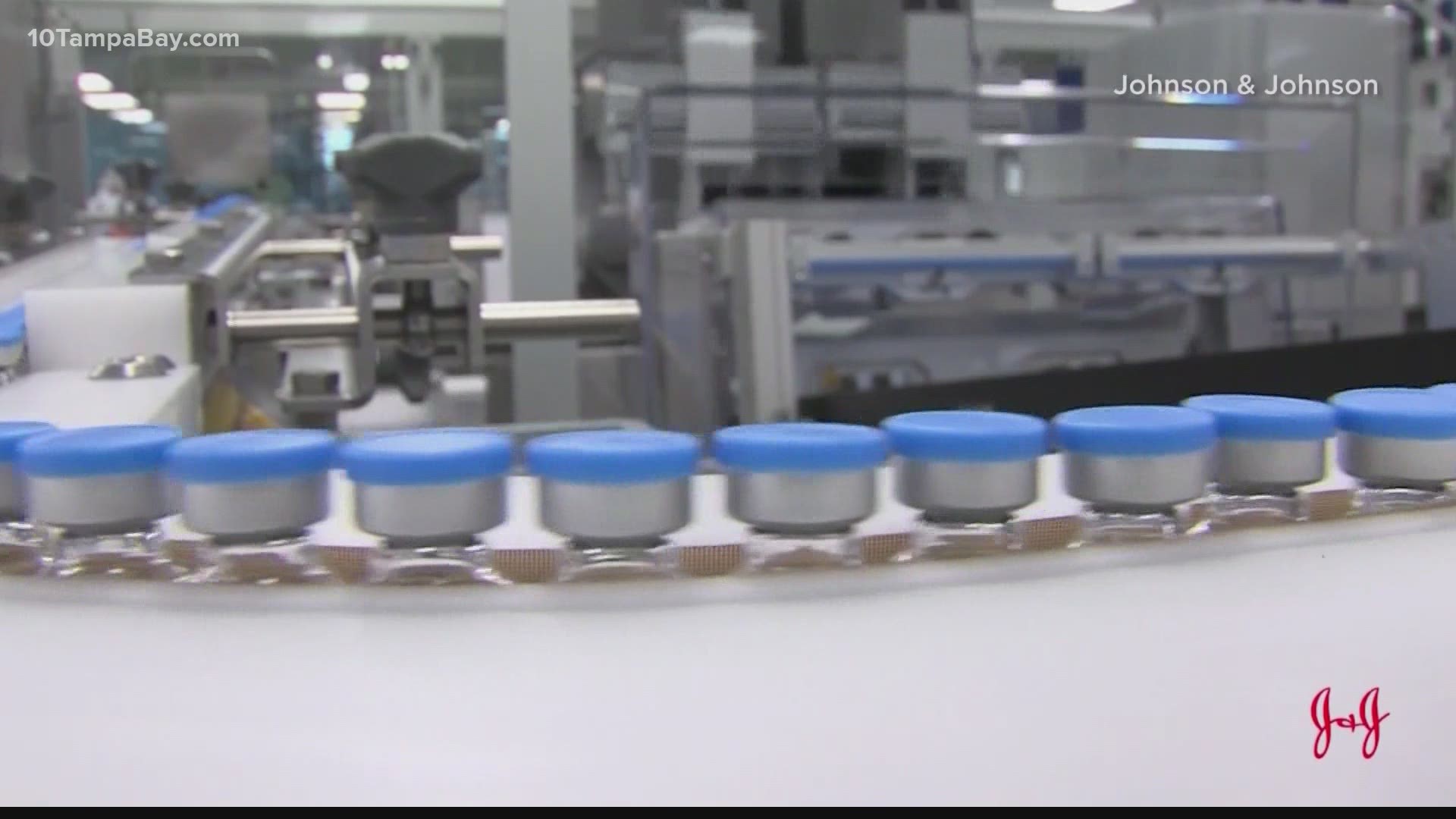TAMPA, Fla. — The Johnson & Johnson COVID-19 vaccine should be arriving in states across the U.S. this week. And with the arrival of this third covid-19 vaccine comes many questions.
We took three of the top questions asked about the newly approved Johnson & Johnson vaccine and brought them to an expert. Dr. Michael Teng is a virologist at USF Health who has studied viruses for over 15 years.
Many Americans asked Google, "How effective is the Johnson & Johnson vaccine?"
In clinical trials, the vaccine was shown to be 66 percent effective, lower than that of Pfizer and Moderna, which are both around 95 percent effective. But Dr. Teng it isn't completely fair to compare J&J's vaccine to the other two.
"So the Pfizer and Moderna vaccines were trials when the actual incidence was pretty low. Right now, you know, I mean, the Johnson & Johnson vaccine was trialed in the U.S. when we had this big surge of cases," said Teng.
Most importantly, "What you can see from the clinical trial data is that all the vaccines are really effective at preventing severe COVID, preventing hospitalizations from severe COVID. And really, really effective at preventing death," he said.
People also want to know if the Johnson & Johnson vaccine has side effects. The FDA reports that side effects include headaches, fatigue, muscle pain, injection site pain, fever, and nausea.
But because it's a single-dose vaccine, Teng says the side effects aren't normally too bad, "And so that single-dose tends not to give you that many side effects. And you kind of see the same thing with mRNA vaccines. The first dose doesn't give you as many side effects as the second dose. Well for the Johnson & Johnson vaccine, there's no second dose. So we have very mild side effects."
Finally, many people want to know when the Johnson & Johnson vaccine will be available.
Right now, the company only has 4 million doses, but there are plans to scale up production in the coming weeks.
Teng is confident in this process. "The one thing about their technology is that it's a technology that's been used previously for decades," he said.
This means speeding up production could happen fast.
"Since the technology is not so complicated, they can probably ramp up more quickly than, you know the mRNA vaccines which have pretty specific technology that is required," said Teng.
- J&J's single-shot COVID vaccine get FDA emergency use authorization
- Trump teases White House bid, all but explicitly announcing 2024 run
- Biden hails House passage of $1.9T virus bill, now to Senate
- Rays 101: Your ultimate guide to jumping on the bandwagon this season
- Hospital employee charged with stealing more than $900 from COVID-19 patient's wallet, police say
- AP sources: Feds pinpoint suspect in officer's Capitol riot death
- '40,000 cases daily': Florida scientists say U.K. variant could spark a 4th wave of COVID-19 infections in the state
►Breaking news and weather alerts: Get the free 10 Tampa Bay app
►Stay In the Know! Sign up now for the Brightside Blend Newsletter

